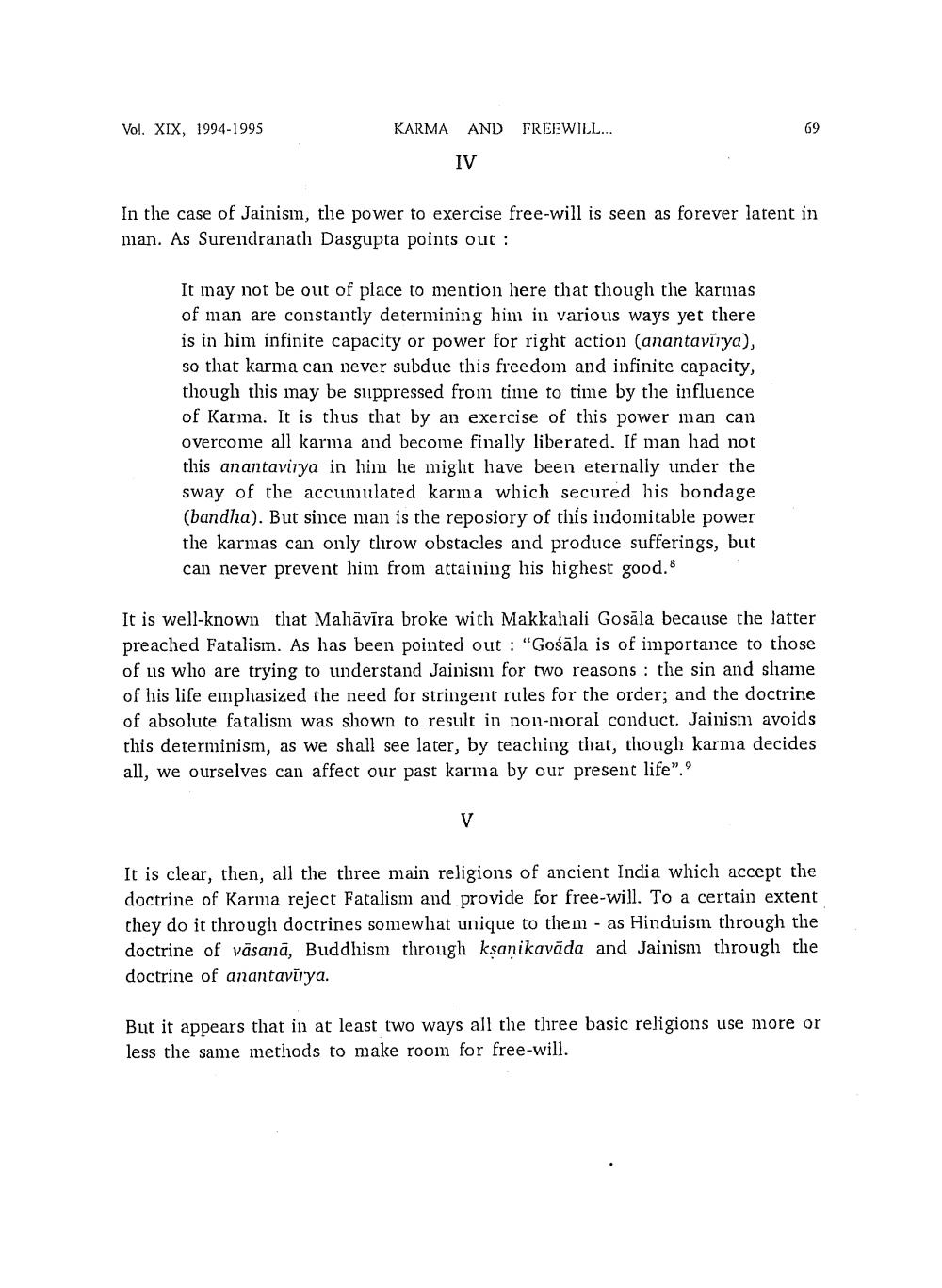________________
Vol. XIX, 1994-1995
KARMA AND FREEWILL...
IV
In the case of Jainisin, the power to exercise free-will is seen as forever latent in man. As Surendranath Dasgupta points out :
It may not be out of place to mention here that though the karmas of man are constantly determining him in various ways yet there is in him infinite capacity or power for right action (anantavīrya), so that karma can never subdue this freedom and infinite capacity, though this may be suppressed from time to time by the influence of Karma. It is thus that by an exercise of this power man can overcome all karma and become finally liberated. If man had not this anantavirya in him he might have been eternally under the sway of the accumulated karma which secured his bondage (bandha). But since man is the reposiory of this indomitable power the karmas can only throw obstacles and produce sufferings, but can never prevent him from attaining his highest good.8
It is well-known that Mahävīra broke with Makkahali Gosāla because the latter preached Fatalism. As has been pointed out : "Gośāla is of importance to those of lis who are trying to understand Jainism for two reasons: the sin and shame of his life emphasized the need for stringent rules for the order; and the doctrine of absolute fatalism was shown to result in no11-moral conduct. Jainism avoids this determinism, as we shall see later, by teaching that, though karma decides all, we ourselves can affect our past karma by our present life”.
It is clear, then, all the three main religions of ancient India which accept the doctrine of Karma reject Fatalism and provide for free-will. To a certain extent they do it through doctrines somewhat unique to them - as Hinduism through the doctrine of vāsanā, Buddhism through ksaņikavāda and Jainism through the doctrine of anantavīrya.
But it appears that in at least two ways all the three basic religions use more or less the same methods to make room for free-will.




